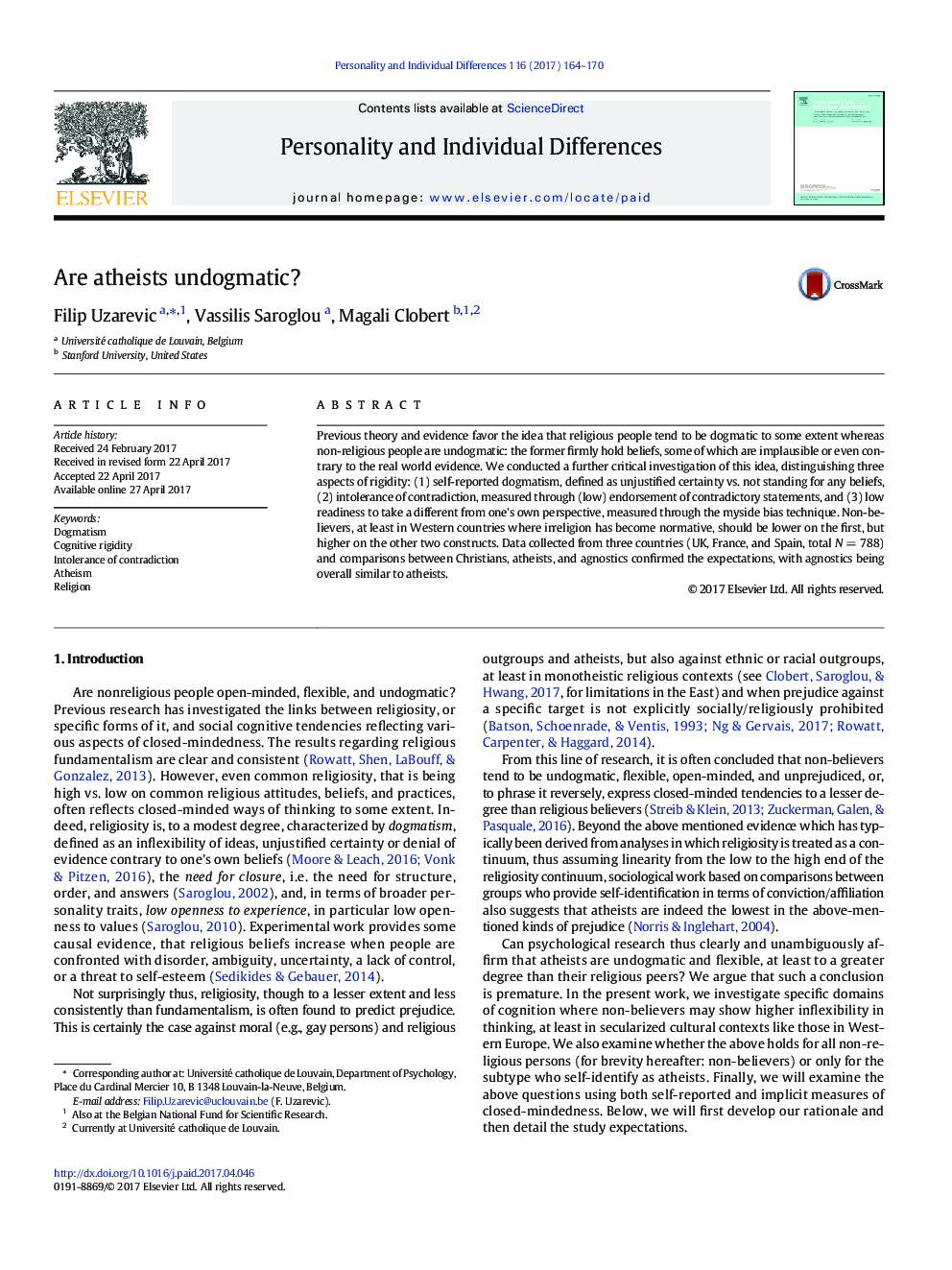| Article ID | Journal | Published Year | Pages | File Type |
|---|---|---|---|---|
| 5035599 | Personality and Individual Differences | 2017 | 7 Pages |
â¢In 3 secular countries, we compared nonbelievers to Christians on aspects of rigidity.â¢Non-believers were lower in self-reported dogmatism, i.e. certainty in beliefs.â¢But were higher in subtly measured intolerance of contradiction and myside biasâ¢Results were similar for atheists and agnostics and across the three countries.â¢Religious believers seem to better perceive and integrate diverging perspectives.
Previous theory and evidence favor the idea that religious people tend to be dogmatic to some extent whereas non-religious people are undogmatic: the former firmly hold beliefs, some of which are implausible or even contrary to the real world evidence. We conducted a further critical investigation of this idea, distinguishing three aspects of rigidity: (1) self-reported dogmatism, defined as unjustified certainty vs. not standing for any beliefs, (2) intolerance of contradiction, measured through (low) endorsement of contradictory statements, and (3) low readiness to take a different from one's own perspective, measured through the myside bias technique. Non-believers, at least in Western countries where irreligion has become normative, should be lower on the first, but higher on the other two constructs. Data collected from three countries (UK, France, and Spain, total NÂ =Â 788) and comparisons between Christians, atheists, and agnostics confirmed the expectations, with agnostics being overall similar to atheists.
